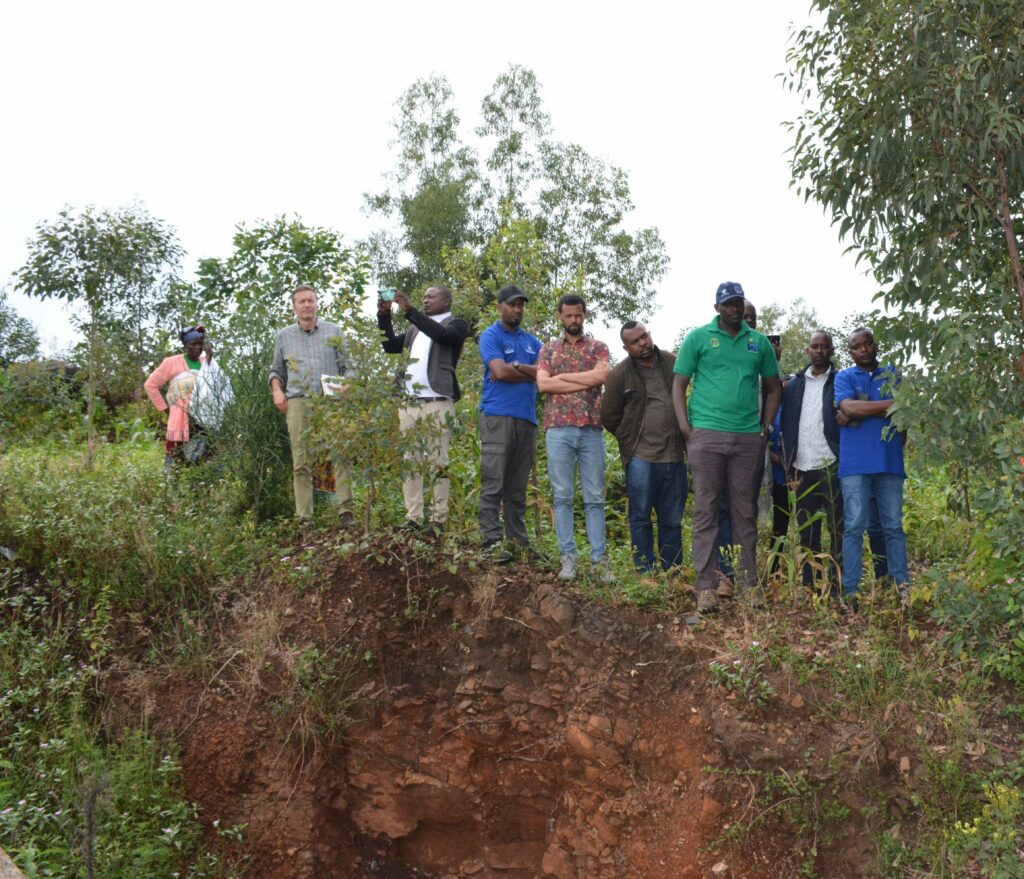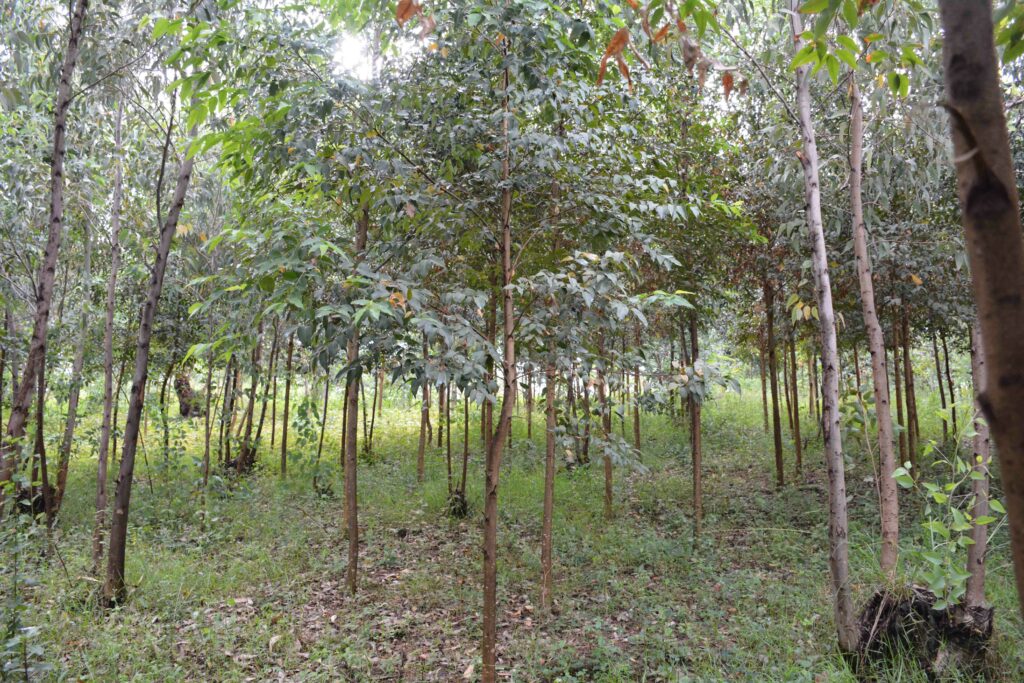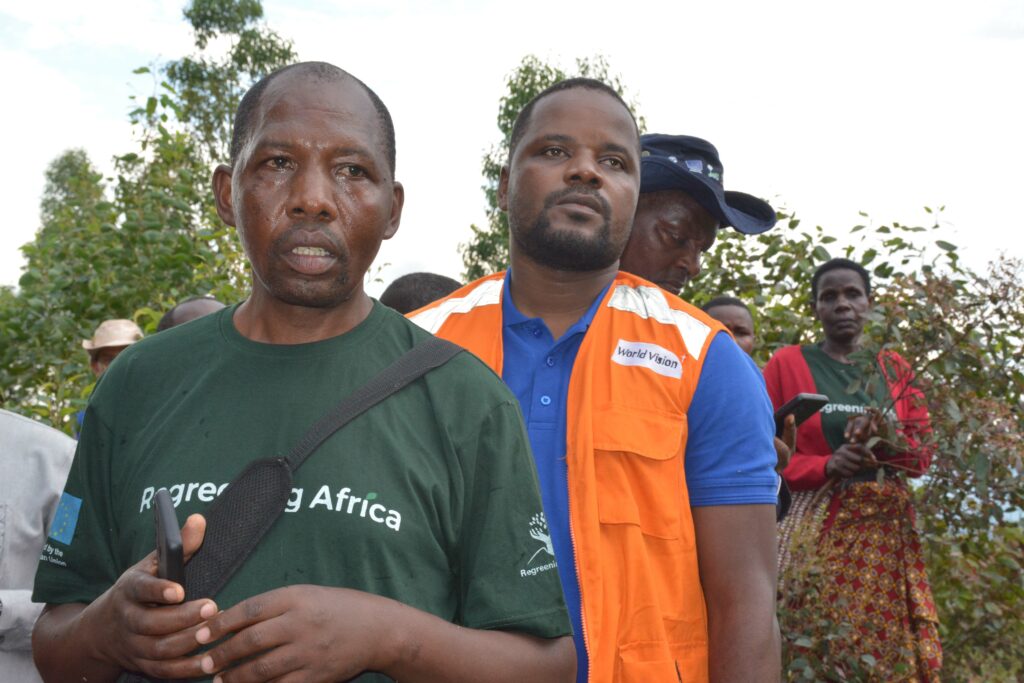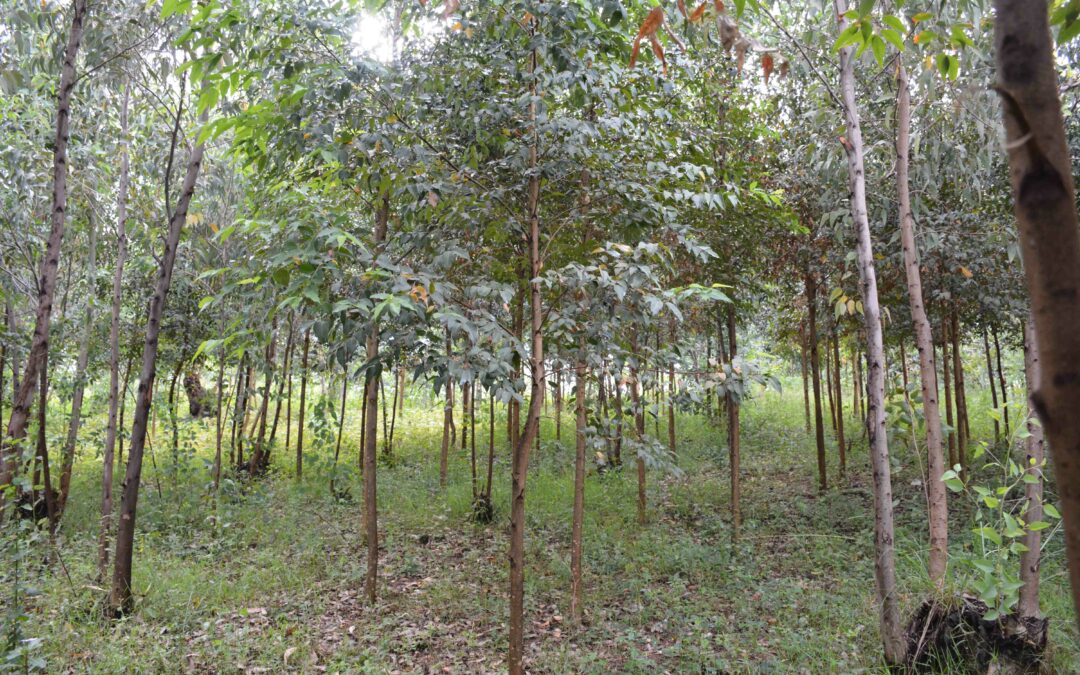By Marion Aluoch
The purchase of 4.5 hectares of degraded land by 36 (27 women and 9 men) members of the Kotagaru (Koperative Tabana Gatunda Rukoma) cooperative in Rwanda’s Gatunda Sector, Nyagatare District, was atypical. The acquired land was negatively impacted by gravel extraction for construction. The terrain was rough and stony, with a large gaping hole.

Part of the land, purchased by the cooperative group, with a huge hole due to gravel extraction that led to extreme land degradation. Regreening Africa/Marion Aluoch
Before the purchase of the land, they had decided as a group to plant and grow trees for wood.
“We noticed that there was a shortage of wood, so we came up with the idea of planting trees, particularly Eucalyptus species for poles and timber production,” says Rumanyika Valens, the cooperative leader.
In search of land to make their idea a reality, the cooperative learned that a piece of land was available for purchase. However, they faced one obstacle. They did not have the finances to purchase the piece of land.
“We decided to take it upon ourselves to take a bank loan to purchase the land when we heard that the owner of the land was selling,” says Valens.
At the cooperative level, farmers have access to finances from financial institutions, as long as there is a guarantee that they will be able to repay the loan. For the Kotagaru cooperative, being legally registered as a cooperative at the Rwanda Cooperative Agency, their credibility and integrity as a cooperative as well as their detailed proposal to grow a woodlot on the land and sell the trees once matured, enabled them to access the financial assistance.
As a result, the cooperative was successful in securing a loan of 5 million Rwandan Francs (approximately USD 4,600).
With the land in their possession, the cooperative needed technical support and tree seedlings to carry out their plan. The Regreening Africa programme, implemented in Rwanda by World Vision with technical assistance from ICRAF (World Agroforestry), increased their capacity in agroforestry practices such as tree planting and management, and also provided them with tree seedlings. Given the severity of degradation, the only tree species that could be planted for production was Eucalyptus. The variety recommended was Eucalyptus microcorys because it produces high quality timber and is tolerant to the climatic and soil conditions of the area.
The cooperative planted 30,000 Eucalyptus microcorys trees to establish the woodlot and anticipates a substantial profit once they begin harvesting the mature trees and sell them for timber and wood.
 The Eucalyptus woodlot planted by the cooperative group. Photo: Regreening Africa/Marion Aluoch
The Eucalyptus woodlot planted by the cooperative group. Photo: Regreening Africa/Marion Aluoch
“At the moment, we are focused on paying back the loan, but we are confident that we will make a profit once the trees mature. According to the current market price, one pole costs 2,500 RWF (about USD 2.3),” says a hopeful Valens.
Each member makes a monthly contribution of 18 US Dollars toward repayment of the loan, which is scheduled to be paid off in its entirety by 2024. According to Valens, the average household earns 30 US Dollars per month. As a result, the members go out of their way to make sure the loan is repaid on time.
 The cooperative’s leader, Rumanyika Valens, speaks about the cooperative’s experience buying the land and raising eucalyptus while former Regreening Africa project manager Alex Mugayi observes. Photo: Regreening Africa/Marion Aluoch
The cooperative’s leader, Rumanyika Valens, speaks about the cooperative’s experience buying the land and raising eucalyptus while former Regreening Africa project manager Alex Mugayi observes. Photo: Regreening Africa/Marion Aluoch
Aside from the anticipated income from the sale of the timber, the ecosystem has improved as a result of their restoration efforts. For example, soil erosion, which was a major issue, has significantly reduced.
Implemented by World Vision Rwanda with technical assistance from World Agroforestry (ICRAF), Regreening Africa promotes farm diversity by encouraging farmers to grow and manage diverse tree species and the development of value chains, resulting in restored ecosystems, improved livelihoods, and increased farm productivity.
Regreening Africa is a five- and half-year programme (2017-2023) funded by the European Union that seeks to improve livelihoods, food and nutritional security, resilience to climate change and to restore ecosystems services through evergreen agriculture. In Rwanda, the programme operates in Bugesera, Kayonza, Gatsibo, and Nyagatare Districts of Eastern Province and seeks to reach 70,000 households adopting evergreen agriculture practices over an area of at least 100, 000 hectares.
This story was produced with the financial support of the European Union. Its contents are the sole responsibility of Regreening Africa and do not necessarily reflect the views of the European Union.

